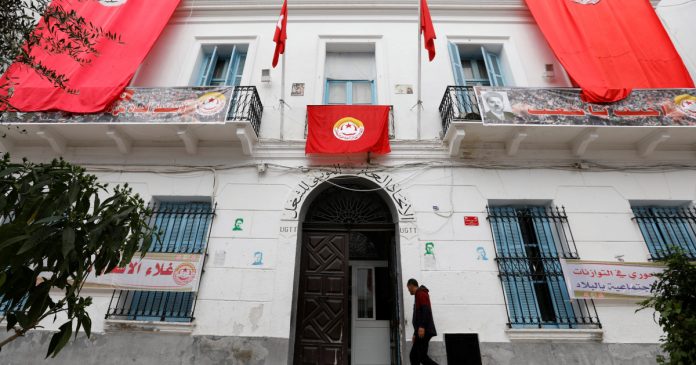[ad_1]
The international lender says the country must clearly stipulate measures to cut down its huge fiscal deficit.
The International Monetary Fund (IMF) warned Tunisia’s fiscal deficit could exceed 9 percent of gross domestic product (GDP) and urged the country to control energy subsidies, transfers to state companies and wages, even as protesters demand jobs and economic development.
Violent protests have hit Tunisia at a time of unprecedented economic hardship in the North African country, which ran a fiscal deficit of 11.5 percent of GDP in 2020, the highest in nearly 40 years.
The 2021 budget aims to cut the fiscal deficit to 6.6 percent but the IMF, following a mission in Tunisia, issued a statement on Friday calling for specific measures to back this objective.
Government wages more than doubled to about 20 billion dinars ($7.45bn) in 2021 from 7.6 billion dinars ($2.82bn) in 2010.
Tunisia expects a GDP growth of 3.8 percent this year, compared with a record contraction of 8.2 percent in 2020.
‘Specific measures needed’
The Central Bank of Tunisia agreed in December to buy treasury bonds worth 2.8 billion dinars ($1.04bn) to finance the record fiscal deficit in 2020 budget after weeks of disagreement with the government.
But the IMF urged financial authorities to avoid future monetary financing of the government, as it risks reversing the gains achieved in terms of lowering inflation, saying this could weaken the exchange rate and international reserves.
Its statement said “specific measures are needed … and in their absence, staff projects a higher deficit of over 9 percent of GDP”.
Tunisia has been hailed as the Arab Spring’s only democratic success story because protests toppled autocrat Zine El Abidine Ben Ali in 2011 without triggering violent upheaval, as happened in Libya, Egypt and Syria.
But since then, all cabinets have failed to resolve Tunisia’s economic woes, including high inflation and unemployment, and impatience over its slowness in carrying out reforms is rising among international lenders.
[ad_2]
Source link











